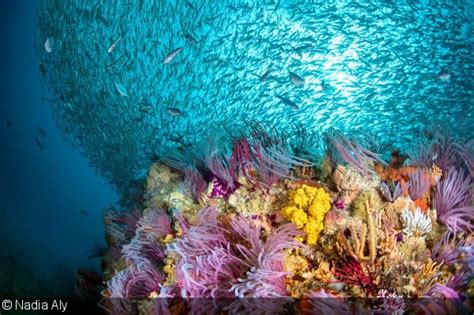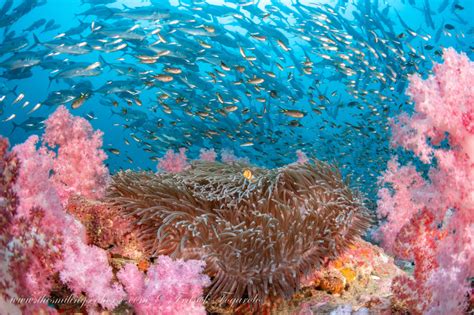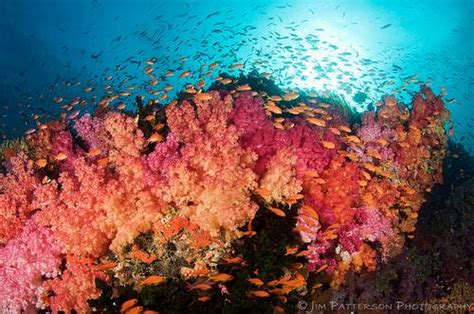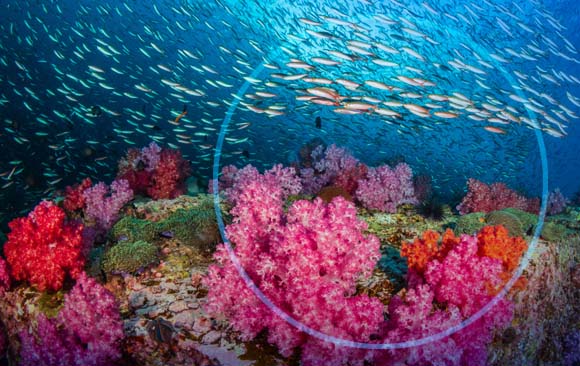Marine pollution is a growing environmental crisis that threatens the health of our oceans, marine life, and human populations. From plastic waste and chemical spills to oil leaks and agricultural runoff, the causes of marine pollution are varied and complex. These pollutants not only disrupt delicate marine ecosystems but also pose significant risks to human health and global economies. This comprehensive guide explores the major causes of marine pollution, its far-reaching effects on both nature and society, and the innovative solutions being developed to combat this pressing issue. By understanding the current efforts and future strategies, we can work towards a pollution-free ocean and a healthier planet for future generations.
Embark on a detailed exploration of this topic with uzocn.com
1. Overview of Marine Pollution
Marine pollution arises from the introduction of harmful substances and contaminants into the ocean, causing detrimental effects on marine life, ecosystems, and human health. Sources of this pollution are diverse, encompassing both land-based activities such as agricultural runoff, industrial waste, and untreated sewage, and ocean-based activities like oil spills, shipping operations, and plastic debris. These pollutants accumulate over time in the marine environment, resulting in significant degradation of water quality and posing a serious threat to biodiversity. The persistence of certain pollutants, particularly plastics, which can take centuries to decompose, exacerbates the problem. Recognizing the extent and impact of marine pollution is essential for formulating effective strategies to alleviate its consequences and ensure the protection of our oceans for generations to come.

2. Major Causes of Marine Pollution
Marine pollution arises from a multitude of human activities, both on land and at sea. Land-based sources are the most substantial contributors, with agricultural runoff being a primary culprit. Pesticides, fertilizers, and other chemicals used in farming are frequently washed into rivers and ultimately reach the ocean, resulting in nutrient pollution that triggers harmful algal blooms and oxygen-deprived “dead zones.” Industrial waste, encompassing heavy metals and toxic chemicals, is another significant source, as untreated or insufficiently treated wastewater is often discharged directly into coastal waters.
Plastic pollution is a particularly pervasive problem, with millions of tons of plastic waste entering the oceans each year. This waste breaks down into microplastics, which are ingested by marine organisms and enter the food chain, posing significant risks to both wildlife and humans. Oil spills from ships and offshore drilling operations, as well as accidental releases of hazardous substances during transportation, add to the pollution burden.
Ocean-based activities, including shipping, fishing, and tourism, also contribute to marine pollution. Littering by tourists, the dumping of waste by ships, and discarded fishing gear all add to the accumulation of pollutants in the marine environment. These activities, combined with land-based sources, create a complex and challenging problem that requires coordinated global efforts to address.

3. Impact on Marine Ecosystems
Marine pollution wreaks havoc on marine ecosystems, disrupting the delicate balance that sustains life in the oceans. A major consequence is the destruction of coral reefs, which are crucial for marine biodiversity. Pollutants like oil, chemicals, and plastic waste smother these reefs, blocking sunlight and introducing toxins that cause coral bleaching and death. This loss of coral reefs jeopardizes countless species reliant on them for food and shelter, ultimately impacting the entire marine food chain.
Pollution directly impacts marine life, causing toxic substances to build up in the tissues of fish, shellfish, and other organisms. This process, known as bioaccumulation, involves the accumulation of harmful substances like heavy metals and persistent organic pollutants. These toxins can lead to reproductive problems, birth defects, and stunted growth in marine species. The ingestion of microplastics by marine animals further compounds these issues, as the tiny particles can obstruct digestive systems, resulting in malnutrition or even death.
Nutrient pollution from agricultural runoff fuels harmful algal blooms, which deplete oxygen levels in the water, creating dead zones where marine life cannot survive. These areas are expanding globally, impacting fish populations and other marine species. The degradation of marine ecosystems jeopardizes biodiversity and has serious consequences for human communities that rely on the ocean for sustenance, income, and climate regulation.

4. Human Health Implications
Marine pollution presents significant threats to human health, primarily through the consumption of contaminated seafood. Toxic substances, including heavy metals like mercury, and persistent organic pollutants such as PCBs, build up in marine life. These contaminants can reach harmful levels in fish and shellfish that humans eat. This bioaccumulation process can lead to various health problems, such as neurological damage, reproductive issues, and developmental defects, particularly affecting vulnerable groups like children and pregnant women.
Microplastics ingested by marine life can carry harmful bacteria and pollutants, which enter the human food chain through consumption of contaminated seafood. This poses a risk to human health, increasing the likelihood of gastrointestinal issues and other health concerns. Furthermore, nutrient pollution fuels harmful algal blooms that produce toxins contaminating seafood and water supplies. These toxins can cause severe food poisoning, respiratory problems, and in extreme cases, even death. The increasing impact of marine pollution on human health highlights the critical need for effective solutions to safeguard both ocean ecosystems and public health.
5. Economic Consequences
The economic consequences of marine pollution are far-reaching and impact a wide range of industries, particularly those that depend on healthy ocean ecosystems. The fishing and seafood industry is among the hardest hit, as pollution reduces fish populations and contaminates seafood, leading to declining catches and lost income for fishermen. This, in turn, affects the broader supply chain, from processing plants to restaurants, ultimately raising prices for consumers and reducing the availability of safe, affordable seafood.
Tourism is another sector that suffers due to marine pollution. Polluted beaches, degraded coral reefs, and contaminated waters deter tourists, leading to reduced revenue for coastal communities that rely heavily on tourism for their livelihoods. The cleanup and restoration of polluted areas also impose significant financial burdens on governments and local authorities, diverting funds from other essential services.
Shipping and maritime industries face increased costs due to pollution-related regulations and the need to invest in cleaner technologies and practices. Additionally, the loss of biodiversity and the degradation of marine ecosystems can have long-term economic implications, affecting ecosystem services such as carbon sequestration, climate regulation, and coastal protection. Overall, marine pollution not only threatens the environment but also undermines the economic stability and prosperity of
6. Current Efforts and Legislation
Combating marine pollution requires a multifaceted approach that encompasses international cooperation, national policies, and grassroots activism. Globally, treaties like the International Convention for the Prevention of Pollution from Ships (MARPOL) establish rules to reduce pollution from maritime vessels. Meanwhile, the United Nations Environment Programme (UNEP) collaborates with nations to tackle issues like marine debris and plastic pollution.
National governments have also taken steps to curb pollution through legislation. For example, the U.S. Clean Water Act regulates the release of pollutants into waterways, while the European Union’s Marine Strategy Framework Directive seeks to improve the ecological health of European seas.
Grassroots and non-governmental organizations (NGOs) are vital to raising awareness, organizing clean-up efforts, and advocating for stricter policies. Campaigns such as The Ocean Cleanup, which targets plastic removal from the ocean, and initiatives like Plastic Free July, which promotes individual reduction of single-use plastics, demonstrate their impact.
“Even with these efforts, challenges persist. Continued collaboration between governments, businesses, and communities is crucial for achieving success.”
7. Innovative Technologies for Pollution Mitigation
Innovative technologies are essential in the battle against marine pollution, providing novel solutions for mitigating and managing environmental damage. One promising development is the utilization of advanced filtration systems to capture microplastics and other pollutants from wastewater before it enters the ocean. Technologies like the Seabin, which collects floating debris from marinas and ports, are also making a notable contribution to this effort.
Furthermore, autonomous drones and underwater robots are being utilized to monitor pollution levels and gather data on the health of marine ecosystems. These devices can reach areas that are difficult for humans to access and provide real-time information, leading to improved response efforts and enabling more precise pollution control strategies.
The development of advanced materials, including biodegradable plastics and eco-friendly coatings, aims to mitigate the long-term consequences of waste. Additionally, innovations in waste-to-energy technologies are transforming marine litter into valuable resources, ultimately diminishing the amount of waste entering the ocean.
Furthermore, satellite technology is enhancing our ability to track and predict the movement of pollution, facilitating more efficient cleanup operations and better-informed policy decisions. These cutting-edge technologies represent a crucial
8. Future Strategies for a Pollution-Free Ocean
A multifaceted approach is needed to achieve a pollution-free ocean, encompassing policy, technology, and community engagement. Strengthening international agreements and enacting stricter regulations on waste disposal and emissions are vital to curb pollution at its source. Expanding global initiatives like the Clean Seas Campaign can encourage collective action and support efforts to eliminate single-use plastics and other harmful materials.
Technological advancements will remain crucial in addressing pollution. Continued research is dedicated to creating more efficient pollution capture and recycling technologies. Investing in innovative solutions, such as ocean-cleaning devices, biodegradable materials, and waste-to-energy systems, will be vital for reducing existing pollution and preventing further contamination.
Public awareness and education are crucial for driving change. Encouraging sustainable practices, supporting zero-waste initiatives, and promoting marine conservation through community engagement can significantly reduce pollution. Moreover, fostering partnerships between governments, businesses, and NGOs will enhance collaborative efforts to address marine pollution in a comprehensive manner.
Achieving a pollution-free ocean necessitates a collaborative global commitment. This involves implementing and supporting strategies that safeguard and rehabilitate marine ecosystems, thus guaranteeing their health for generations to come.
Addressing marine pollution requires urgent and coordinated action across all sectors of society. By understanding its causes and impacts, we can develop effective solutions and strategies to mitigate its effects. Innovative technologies, combined with robust legislation and public engagement, are crucial for combating this global challenge. With continued effort and collaboration, we can protect marine ecosystems, safeguard human health, and ensure a cleaner, healthier ocean for future generations. The path to a pollution-free ocean is demanding but essential for the well-being of our planet.
uzocn.com


